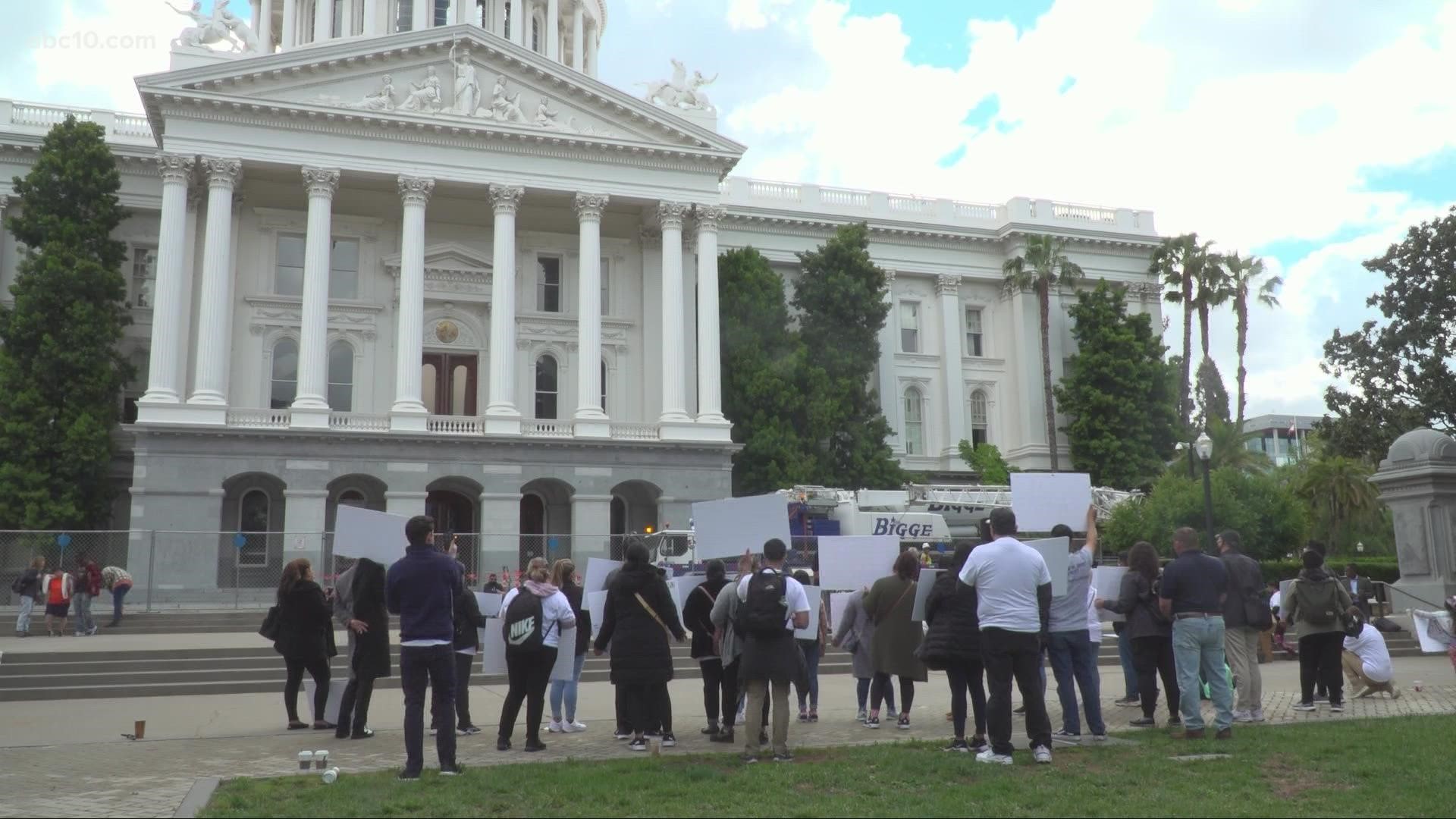SACRAMENTO, Calif — About a dozen people rallied in front of the California State Capitol Friday morning in Sacramento.
The group urged Gov. Gavin Newsom and the State Legislature to include the California Health Equity and Racial Justice Fund (HERJ Fund) in the 2022-23 state budget.
The HERJ fund would provide $100 million in annual funding to community-based groups, tribal organizations, and clinics (CBOs) to support marginalized communities. The fund will support CBOs to:
- Reduce health and social inequities that impact communities of color and other marginalized communities.
- Transform community conditions and institutional/government systems to promote racial justice.
“Community-based organizations, clinics, and tribal organizations play an important, yet often unnoticed and unfunded, role in positively addressing social determinants of health," said Oussama Mokkedem, the director of State Policy, Public Health Advocates. "These are the things that make us healthy, where we live, work, and play. Things like housing, access to clean water and nutritious food, the ability to walk in our neighborhoods, and more."
Despite some support from the California Legislature, Gov. Newsom did not include the HERJ Fund in the state budget proposal in January. More than 200 organizations, along with 300-plus people, also support the proposed fund.
“I dedicate my life and career to combating health inequities,” said Genoveva Islas, executive director of Cultiva la Salud. “We have had success, but our funding has been a challenge. Working grant to grant does not allow us to sustain activities and programs for community. We deserve better.”
Many supporters of the fund also noted how the COVID-19 pandemic disproportionately impacted communities of color, exacerbating already existing health inequities and racial injustices.
That includes a higher risk of contracting and dying from COVID-19, high rates of job and income loss, insecure housing, food insecurity, and much more.
"Governor Newsom needs to step up on the issue of racial equity and racial justice," said Ronald Coleman, managing director of Policy, California Pan-Ethnic Health Network. "We can do a lot more as a state to ensure that health equity projects are reducing inequalities in our communities, while also focused on tackling what caused these inequalities in the first place, racism, and dealing with that issue in our local communities across the state."

